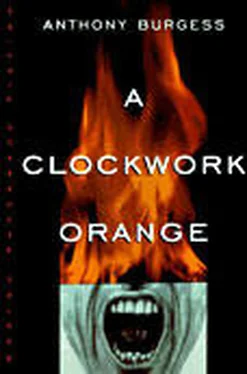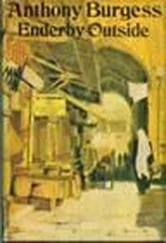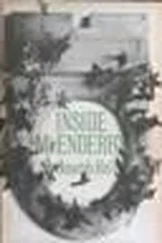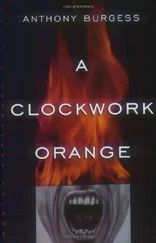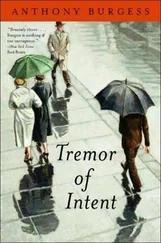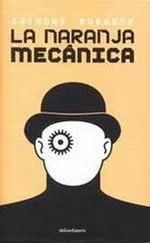Anthony Burgess - A Clockwork Orange (UK Version)
Здесь есть возможность читать онлайн «Anthony Burgess - A Clockwork Orange (UK Version)» весь текст электронной книги совершенно бесплатно (целиком полную версию без сокращений). В некоторых случаях можно слушать аудио, скачать через торрент в формате fb2 и присутствует краткое содержание. Жанр: Современная проза, на английском языке. Описание произведения, (предисловие) а так же отзывы посетителей доступны на портале библиотеки ЛибКат.
- Название:A Clockwork Orange (UK Version)
- Автор:
- Жанр:
- Год:неизвестен
- ISBN:нет данных
- Рейтинг книги:3 / 5. Голосов: 1
-
Избранное:Добавить в избранное
- Отзывы:
-
Ваша оценка:
A Clockwork Orange (UK Version): краткое содержание, описание и аннотация
Предлагаем к чтению аннотацию, описание, краткое содержание или предисловие (зависит от того, что написал сам автор книги «A Clockwork Orange (UK Version)»). Если вы не нашли необходимую информацию о книге — напишите в комментариях, мы постараемся отыскать её.
Alex is the type of character one loves to hate; he makes it all too easy to dislike him. He is a brutal, violent, teenage criminal with no place in society. His one and only role is to create chaos, which he does too well. Alex’s violent nature is first witnessed during the first chapter, and is soon seen again when Alex and his gang chose to brutally beat an innocent drunkard. This beating off the homeless man serves no purpose other then to amuse Alex’s gang. The acts committed were not performed for revenge, the one reason given was that Alex did not enjoy seeing a homeless drunk, “I could never stand to see a moodge all filthy and rolling and burping and drunk, whatever his age might be, but more especially when he was real starry like this one was”. Alex continues to explain his reason for dislike, “his platties were a disgrace, all creased and untidy and covered in cal”, from this explanation one realizes his reasons for nearly killing a man are simply based on pleasure, desire, and a dislike toward the untidy. By the end of the second chapter Burgess’s inventive usage of a different language to keep the reader alienated from forming opinions about Alex ceases to work. At this point in time Alex’s true nature is revealed, and not even his unfamiliar Nadsat language can save him from being strongly disliked by the reader.
The more the reader learns of Alex, the more and more he is disliked; Alex’s relationship with his parents only builds on ones already negative opinions toward Alex. Coming from a normal family and a sturdy household free of domestic violence, there is no excuse for Alex’s violent nature. In fact, Alex’s loving parents are just as baffled by his immoral personality as the reader, although because of their naivete, they know much less of what he does. This leaves the reader uninformed and wondering: why is Alex the way he is? Fortunately, just as one begins to question Alex’s motives, Alex gives an answer, “badness is of the self, the one…is not our modern history, my brothers the story of brave malenky selves fighting these big machines? I am serious with you, brothers, over this. But what I do I do because I like to do”. He could not have explained it more clearly. While from one point of view Alex visions himself as a revolutionary, even simpler then that, he is basically admitting he commits violent acts because he enjoys doing so. Later in the book Alex offers another solution for his violent nature, “Being young is like being one of these malenky machines…and so it would itty on to like the end of the world”. These malenky machines he is referring to are very similar to the clockwork orange Burgess talks to in his introduction. Whatever reasons he gives, none of them are valid enough to prevent the reader from hating Alex.
In spite of all the hatred aimed toward Alex at this point, seemingly it is not enough to prevent the pity one begins to feel when Alex is abandoned by his “droogs”. Knowing he is the leader of his group, Alex constantly gives orders to his gang. Unfortunately it is due to his tendency to need leadership that a quarrel begins with his gang. After settling the original dispute that arises, Alex and his “droogs” are not so successful at ending their second squabble. Framed by his friends, Alex is arrested while they run away. Furthermore, he is beaten by the police, and sentenced to fourteen years of jail. It only takes two of them for the reader to realize the difficulties that Alex is living through. Throughout the first part of the book, there is in fact only one sign that Alex is not utterly evil, that being his music. Along with his abandonment from friends, it is the music that Burgess uses to help change the readers opinion, and eventually to have pity toward his young antagonist.
As the reader continues to pry deeper into Alex’s life it is shocking to learn of the music he listens to, it is because of this music and the actions taken against him that one truly begins to feel sorry for Burgess’s little Alex. The music that Alex chooses to listen is very ironic. While it causes him to do evil things, the fact remains that he listens to normal music, one of the first things he is not disliked for, “lying there on my bed with glazzies tight shut and rookers behind my gulliver, I broke and spattered and cried aaaaaaah with the bliss of it". His particular interest in Ludwig Van arises during one of his sessions while undergoing Ludivico’s Technique. Upon hearing what he perceives to be heavenly music Alex cry’s out about the injustice in the procedure, “I don’t mind about the ultra-violence and all that cal. I can put up with that. But it’s not fair on the music”. It is during this same treatment that the reader really begins to feel sympathy toward him. Striped of his ability to choose right from wrong, and now the same clockwork orange that F. Alexander earlier told him about, Alex becomes one of the governments’ machines. Forced to do exactly what they want him to, become their “true Christian”, Alex poses the question to his doctors, “How about me? Where do I come into all this? Am I like just some animal or dog…am I to be just like a clockwork orange?” Alex is all alone in the world, no longer capable of performing cruel deeds, he is denied by all whom he once knew. The same character one used to wish the harshest punishment upon received it, and when he got it, it becomes strikingly evident that it was much more then even the worst person would ever deserve.
Burgess does a magical job at making the reader quickly forget the horrible deeds Alex once committed. Instead by making powerful moral statements, Burgess goes so far that the reader not only turns the other cheek toward Alex’s crimes, but also feels genuinely sorry for him. Alex may not be completely cured, but that is not the issue at hand. Through means of pity and by playing with the readers’ emotions throughout the book, during A Clockwork Orange, Burgess is constantly playing with the reader’s allegiances.
